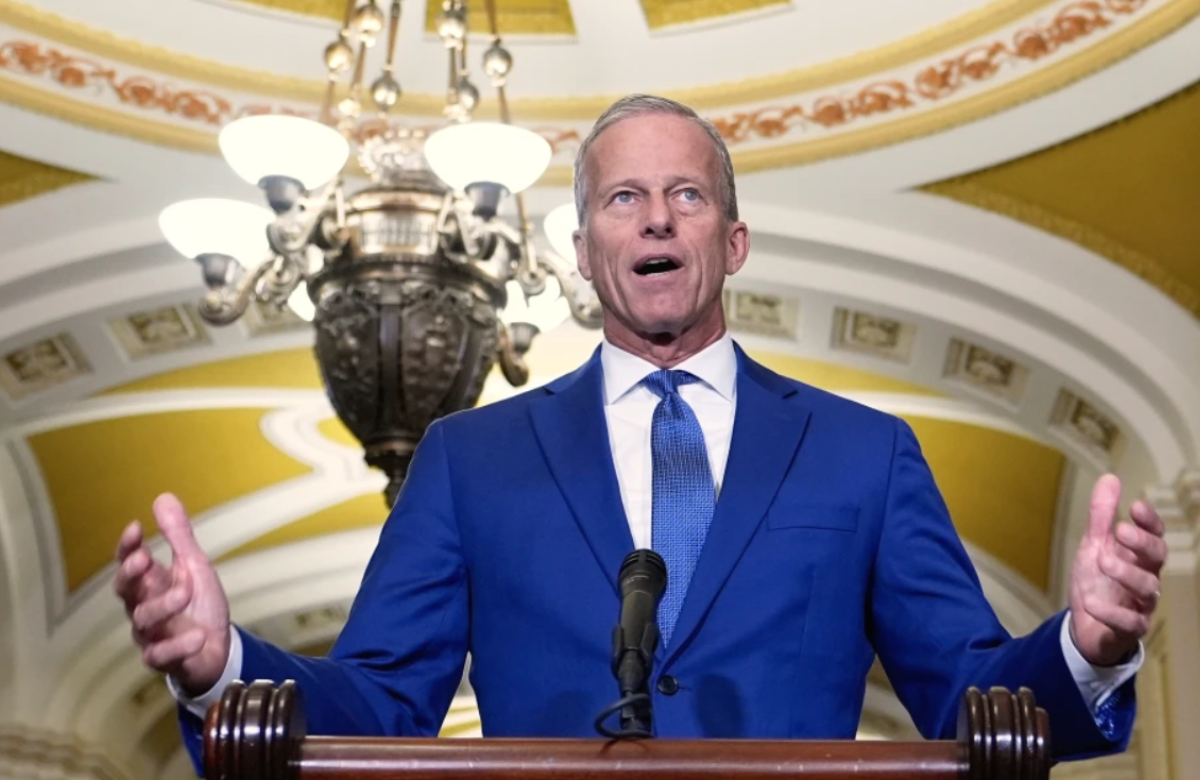Senate Republicans are considering revisions to President Trump’s proposal to rescind $9.4 billion in previously approved federal funding as they prepare for a pivotal test vote. The plan aims to reclaim approximately $1.1 billion from the Corporation for Public Broadcasting and $8.3 billion from foreign aid initiatives designed to combat famine and disease and support global stability. Congress must finalize a bill by Friday to avoid a lapse in these funds.
Senate Majority Leader John Thune (R-SD) stated that some GOP senators favor “modest changes” to the proposal. Securing the support of nearly all Senate Republicans is crucial, but many are raising concerns about deep cuts to public broadcasting and to the PEPFAR global health program, which has saved millions of lives since its inception under President George W. Bush.
Thune told reporters, “We’re trying to find out if there’s a path forward that gets us 51 votes and stays consistent with what the White House proposed.”
Budget Chief Russ Vought is expected to address Republican concerns during a Senate GOP luncheon. The White House’s outreach seems to be having an effect: Senator Mike Rounds (R-SD) tweeted his support after working with the administration to restore funding for tribal radio stations by tapping into Green New Deal appropriations.
Senator Susan Collins (R-ME), chair of the Senate Appropriations Committee, noted she still needs clarification on proposed cuts to global health programs. Other senators warned that slashing public media funding could devastate many of the 1,500 local stations that rely on CPB grants—about 70% of its budget is passed through to them.
Democrats are expected to oppose the rescission plan unanimously, viewing it as a bid to weaken the Senate’s budget authority. Independent Sen. Angus King (ME), who caucuses with Democrats, criticized the move by saying, “It shreds the appropriations process… this body becomes a rubber stamp for whatever the administration wants.”
If the Senate proceeds, the bill could spark up to 10 hours of debate and multiple amendment votes in a “vote-a-rama.” The House has already passed the proposal on a mostly party-line vote of 214–212. Any changes made in the Senate will require the package to return to the House for another vote.
House Speaker Mike Johnson urged the Senate to approve the measure unchanged, stating, “That’s what we did.”
Republicans who oppose the measure are also facing pressure from President Trump, who took to social media to warn that any GOP senator voting to maintain funding for public broadcasting “will not have my support or Endorsement.”
Also Read:
Ex-Massachusetts Republican Senator Scott Brown Announces Run to Replace Shaheen in New Hampshire
U.S. Manufacturing Remains Sluggish Despite Biden’s Subsidies and Trump’s Tariffs













